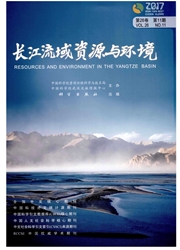

 中文摘要:
中文摘要:
走廊城市是一种新兴的城市群空间发展策略,是城市走廊在经济全球化和知识经济背景下的新发展。走廊城市不仅强调空间形态上的线状发展特征,而且更加强调城市群交流的效率以及经济发展模式和城市功能的整合。首先对走廊城市的概念和发展阶段进行了概述,并分析了建设甬台温走廊城市的区域背景和可能性;探讨了甬台温区域核心城市宁波、舟山、温州和台州的城市功能营造,提出建设以高速城际交通、沿海大通道以及港口集疏运系统为主体的甬台温交通走廊,寻求有效推动经济低谷地带迅速崛起的特色发展模式,从而构建甬台温走廊城市的布局;最后提出了甬台温走廊城市中心城市和都市区功能整合的相关对策和策略。
 英文摘要:
英文摘要:
In the context of globalization, corridor-city has appeared as a new pattern of city corridor and serves as a new strategy for the spatial development of urban agglomerations. In the bi-centric urban system, close links have been forged between places that are of complementary functions, and the mutual linkages tend to be horizontal rather than hierarchical. The resulting urban configurations take the form of "corridor cities". Corridor-city theory emphasizes intercourse efficiency and functional integration of urban agglomerations as well as linear urban configurations. At first, the paper summarizes the conceptions and development phase of corridor-city and analyzes the precondition and possibility of the construction of Ningbo-Taizhou-Wenzhou corridor-city. Then, the building of urban functions of core cities (Ningbo, Zhoushan, Wenzhou, and Taizhou), the construction of transportation corridors and the characteristic development pattern of less development areas are discussed. In the end, relevant strategies and measures are put forward for the function integration of Ningbo-Taizhou-Wenzhou corridor city.
 同期刊论文项目
同期刊论文项目
 同项目期刊论文
同项目期刊论文
 期刊信息
期刊信息
